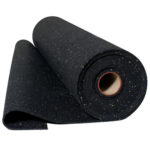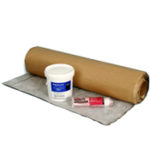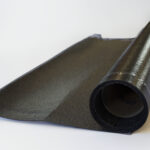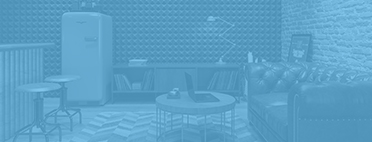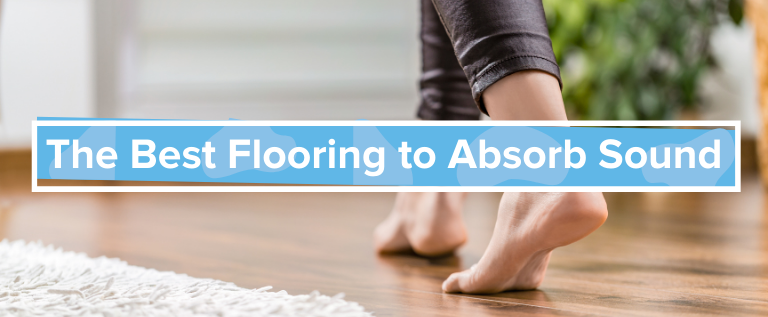
Wood, tile and concrete flooring offer plenty of perks to homeowners, from beautiful aesthetic to easy maintenance. One downside to these flooring styles is that they typically don’t offer great acoustics. If you’re dealing with echoey floors and poor sound quality, don’t worry — ripping out your floors and starting anew is certainly not your only option. There are plenty of flooring materials that can help soundproof your home without requiring any construction overhauls.
Flooring to Consider for Sound Absorption
When it comes to soundproofing your floor, there are soundmany different options out there. Consider these five examples of the best flooring to absorb sound.
1. Acoustic Underlayment
Acoustic flooring underlayments are easy to apply, cost-effective and highly effective at blocking sound. Simply place your acoustic underlayment on top of your floor for a cushion that will reduce both airborne and impact noise.
2. Mass Loaded Vinyl
Thin yet heavy, mass loaded vinyl is remarkably easy to cut, customize and apply. It provides density without adding significant depth to your flooring for an unobtrusive soundproofing solution.
3. Sound Absorbing Floor Insulation
Sound absorbing floor insulation can be placed around floor joists underneath the subfloor. This creates a dense layer of insulation that keeps sound waves from reverberating in your space.
4. Sound Absorbing Carpet Padding
Looking for the best carpet to absorb sound? Quality carpet padding provides a thick, dense surface perfect for noise absorption. For best results, try pairing your carpet padding with a soundproof underlay.
5. Acoustic Floor Tiles
Acoustic tiles are designed to reduce echo and reverberation in spaces with hard flooring surfaces. Lay these tiles on top of your flooring to help reduce bothersome noise caused by both footfall and airborne sounds.
View this post on Instagram
How to Choose the Flooring That Will Work Best in Your Application
We offer a range of soundproofing underlayments to accommodate the flooring you choose. Consider these factors to help you find the right fit:
- Existing flooring: Every floor offers varying acoustics and requires a different soundproofing technique. Carpeting is often the best pick for flooring material as it naturally reduces footfall and impact noise. If your existing floor is hardwood, ceramic tile or laminate flooring, you’ll likely experience a higher level of impact and airborne noise and need a heavy-duty soundproofing flooring to lay on top.
- Noise source: Flooring-related noises are generally either airborne or caused by impact. Identify whether you’re primarily hearing footfall sounds reverberating through the floor or noises traveling through the air, like people speaking or music playing.
Finally, you’ll want to consider the Sound Transmission Class (STC), the Impact Insulation Class (IIC) and the thickness and density of the flooring. Thicker flooring will generally perform better acoustically, while higher STC and IIC numbers indicate the material’s success at reducing noise.
Check out our complete guide to learn which soundproofing solutions we recommend for the most common flooring styles.
Contact Soundproof Cow to Learn More About Choosing the Best Flooring
Still unsure which flooring is the best choice for you? Soundproof Cow is here to help! We’re all about practical solutions using high-quality materials in a cost-effective way. Reach out to our team today to learn more about soundproofing your floor effectively.




